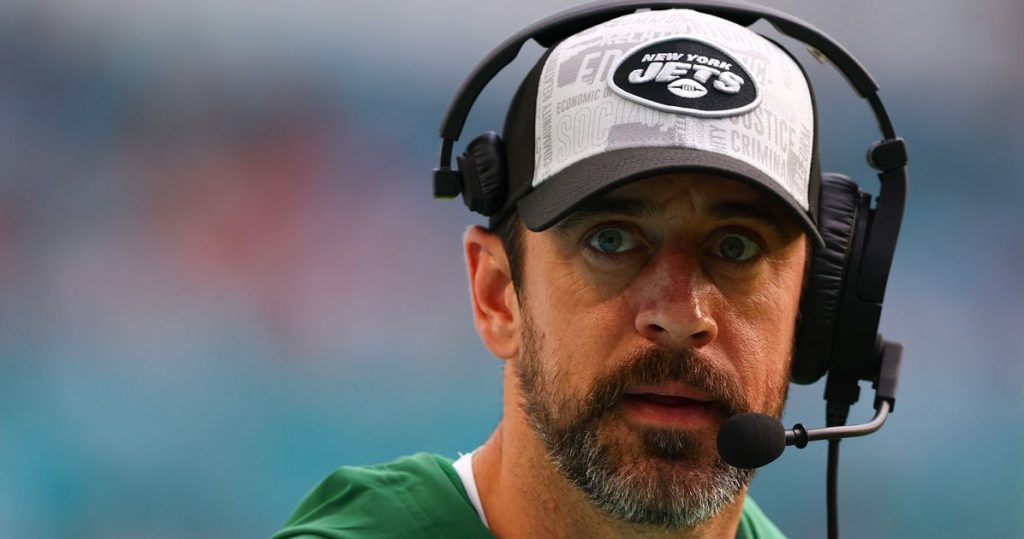The New York Jets quarterback recently made headlines for spreading a debunked conspiracy theory about President John F. Kennedy’s son and former first lady Jacqueline Kennedy Onassis. The theory suggests that John F. Kennedy Jr. is still alive and living under the identity of comedian and political commentator Tim Dillon. This outrageous claim has been widely discredited by experts and historians, but that did not stop the quarterback from sharing it on social media. The quarterback’s decision to perpetuate such a baseless rumor has drawn criticism from both fans and the general public.
Many people were quick to point out the absurdity of the quarterback’s statement, citing the lack of evidence and logical reasoning behind the conspiracy theory. Historians have debunked the theory on numerous occasions, providing detailed explanations of John F. Kennedy Jr.’s tragic death in a plane crash in 1999. Despite the overwhelming evidence against the conspiracy, the quarterback’s post gained traction on social media and sparked debates among users. Some individuals expressed outrage at the quarterback’s lack of critical thinking and judgment in spreading such false information.
The quarterback’s actions have raised questions about the responsibility of public figures in sharing information and the importance of critical thinking in the digital age. As a prominent figure in the sports world, the quarterback wields a significant influence over his followers and fans. By sharing a debunked conspiracy theory, he has potentially misled and misinformed his audience, contributing to the spread of misinformation online. This incident serves as a stark reminder of the power and reach of social media platforms, highlighting the need for individuals to fact-check information before sharing it with others.
In response to the backlash, the quarterback issued a statement clarifying his intentions behind sharing the conspiracy theory. He claimed that he was simply asking questions and exploring different perspectives, rather than endorsing the theory as fact. However, many critics have pointed out that by sharing the theory without providing a disclaimer or context, the quarterback inadvertently legitimized the false information in the eyes of his followers. This incident underscores the importance of responsible communication and the potential consequences of spreading misinformation, especially when it involves sensitive and controversial topics such as the Kennedy family.
The controversy surrounding the quarterback’s post has reignited debates about the prevalence of conspiracy theories and misinformation in society. In an age where information is readily available at the click of a button, individuals must be vigilant in verifying the credibility of sources and questioning the validity of claims. The quarterback’s decision to amplify a baseless conspiracy theory serves as a cautionary tale for both public figures and the general public about the dangers of spreading false information. As discussions continue about the impact of social media on the spread of misinformation, it is essential for individuals to exercise critical thinking and discernment in consuming and sharing information online.
In conclusion, the New York Jets quarterback’s involvement in spreading a debunked conspiracy theory about President Kennedy’s son and former first lady has sparked controversy and condemnation. Despite the lack of evidence supporting the theory, the quarterback’s decision to share it on social media has raised questions about his judgment and responsibility as a public figure. The incident serves as a reminder of the power and influence that individuals wield on social media platforms, highlighting the importance of fact-checking and critical thinking in the digital age. Moving forward, it is crucial for individuals to be discerning in consuming and sharing information online to prevent the spread of misinformation and conspiracy theories in society.


